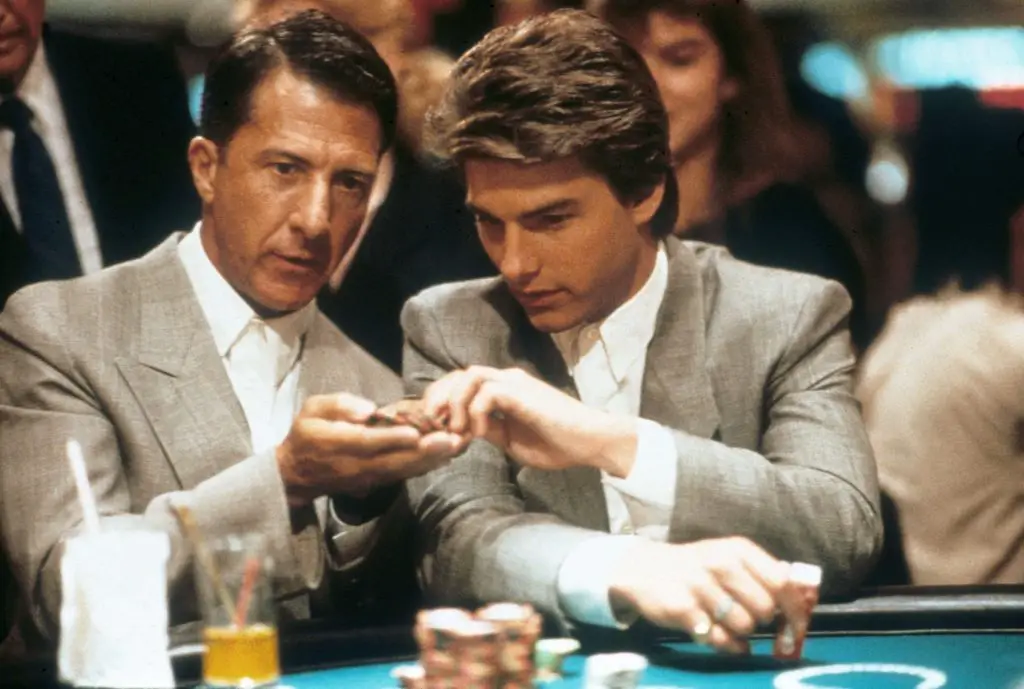Reality Check
While the show aims to promote neurodiversity, it falls prey to some cringeworthy tropes.
By Eric McInnis, Arcadia University
Within the past few years, Hollywood has slowly but surely begun to acknowledge its diversity problem, allowing a greater voice for women, LGBTQ members and minority groups both behind and in front of the camera.
Of course, the recent push has been a long-awaited one, and it’s absolutely wonderful that Hollywood has decided to actually celebrate groups of people who have been maligned in the past. A major blind spot in their push however, has been neurodiversity, more specifically with autism. Of course, there have been a few depictions of people on the autism spectrum throughout television and movies, with the most recent examples of representation being found in the 2017 “Power Rangers” film, and TV shows like “Sesame Street.”
But, there are still plenty of issues Hollywood has failed to address. Most autistic characters within film and television are usually supporting characters, and the ones who are leads often rely on outdated stereotypes, like savant syndrome, with the most obvious example being 1988’s “Rain Man.”
So, when ABC announced one of their new programs, “The Good Doctor,” was going to focus on an autistic surgeon, I doubtfully raised an eyebrow. However, I admit I was perhaps being unfair to the show and its concept. “The Good Doctor,” based on the 2013 South Korean drama of the same name, has some pedigreed talent both in front of and behind the camera. Freddie Highmore, who was a perfect replacement for Anthony Perkins as a young Norman Bates in the A&E show “Bates Motel,” plays the titular doctor, Shawn Murphy.
https://www.youtube.com/watch?v=fYlZDTru55g
Not to mention, one of the medical drama’s creators and the head showrunner is none other than David Shore, who created another famous medical drama, which is also a personal favorite of mine, “House.” There were still some issues when I first heard about the project, such as having Highmore, a neurotypical actor, portray an autistic character instead of an actor with the actual disability, but I thought overall the series would be in good hands and potentially be something great.
So, once the annual TV upfronts arrived, alongside a slew of trailers for upcoming programs like the “Big Five” that will be airing within the next few months, I finally got to see whether “The Good Doctor” would be everything I hoped for or everything I feared. And surprisingly, I found a mixture of conflicting emotions, as while there’s a lot to admire, there’s a lot I found myself rolling my eyes at.
An important disclaimer to make is that I’m only judging the show based on its trailer. I understand the show could potentially be of high quality, and many of my arguments could very well be moot by the time the show airs. After all, the content or quality in the advertising of a show doesn’t automatically correlate to the show’s reality.
It’s also important to add that the only footage shown in the trailer is the pilot, which can be potentially retooled down the line, and does not represent the program as a whole. But, the reason trailers are made is for them to be judged, and I feel it’s still important to address some of my personal issues, so that the producers and writers can give the show a more realistic understanding of autism, and the many stereotypes understood by outsiders of the community by the time the show begins production.
To start off with some of the positives, Freddie Highmore already looks like a great choice to play Dr. Shawn Murphy. Highmore seems to have managed to pull off some of the tics and quirks found within many autistic people, such as fidgeting, poor eye contact and difficulty in understanding other people, but manages to avoid being overly quirky to the point where he’s obnoxious. Of course, it would have been nice to see an actual autistic man portray the character in order to really help understand the lead’s complexities, but Highmore seems to have pulled off said complexities well enough in my book.
It’s also important to give props to the very concept of having a character with autism as the focal point of the show. With a few exceptions, most television shows, particularly ones with huge ensembles, will have their neurodiverse character as a supporting player or, at best, a co-lead position. But with “The Good Doctor,” Highmore is the sole lead, with all the spotlight dedicated to him and his story. Again, examples of characters on the spectrum being the main character are hard to find, with the closest example being the original “CSI” way back in the year 2000, where the character of Gil Grissom was played by William Petersen, and even then he was just a part of a gigantic ensemble.
However, one glaring issue lies within the show’s concept, with Murphy’s savant syndrome. The syndrome, introduced in the second half of the trailer, is the one thing that saves the day. Throughout the pilot, many of the doctors are unsure about whether Dr. Murphy can work as a surgeon, due to his disability, but Murphy’s mentor, played by “The West Wing’s” Richard Schiff, explains that his savant syndrome makes him a worthy surgeon, as he has the ability to understand medical problems better than any other surgeon in the room, automatically making him an important resource.
There are two major problems with the addition of the savant syndrome. For whatever reason, even after several years of supposed progress, Hollywood still only bothers to portray autistic people as those with incredible savant-like abilities, where they know any and all scientific or mathematic problem in the span of a few seconds. I hate to admit it, but while most people have different symptoms that affect them in different ways, most of the autistic community is not like Ray from “Rain Man” or Sheldon Cooper of “The Big Bang Theory.” Such abilities are incredibly rare, affecting only one in ten autistic people, so why continue to portray the rare side of the community and give the majority the shaft?

The other issue comes with how Murphy’s savant syndrome is portrayed. The only reason Schiff’s character encourages his staff to give Murphy a chance is because he’s a savant, which of course is portrayed almost like a superpower, with him being able to see things no other doctors or surgeons can. Essentially, when looking at Schiff’s character and many other scenes shown throughout the trailer, Shawn Murphy is really only viewed as a talented surgeon because of his savant abilities, and without them, his autism is arguably more of a hindrance than a blessing.
Even more awkward, the trailer ends with a rousing speech proclaiming Murphy could give hope and inspiration to those with his limitations. Because the best way to give hope to the neurodiverse community is to show the success of an individual who got this far in life through an ability only 10 percent of his community has, right?
Of course, I know “The Good Doctor” is based off of a South Korean drama with the exact same premise, but I don’t find that to be a good excuse. Just because your show is an adaptation or a remake doesn’t mean you can’t deviate and put in a unique spin, and, frankly, the show would have been far more interesting and more powerful if Shawn Murphy just had autism. There would be a lot of interesting debates on the actual issues of the disabled that could offer interesting commentary on their capabilities. In turn, the “inspiration” angle that the show seems to be going for would be more powerful. By tacking on the savant side of Murphy’s personality, it just makes the show feel like “House 2.0,” but without Hugh Laurie’s likable misanthropy.
But again, this is just my personal reaction to the show’s trailer. In spite of my criticisms, I’m sure David Shore will make a great series and Freddie Highmore will be a great lead, and many of my criticisms could very well end up moot thanks to the show’s direction. But with Hollywood still not fully understanding how to portray the mind and personality of a neurodiverse character, it’s sad that I have to potentially wait a couple more years to see a strong autistic lead.

















